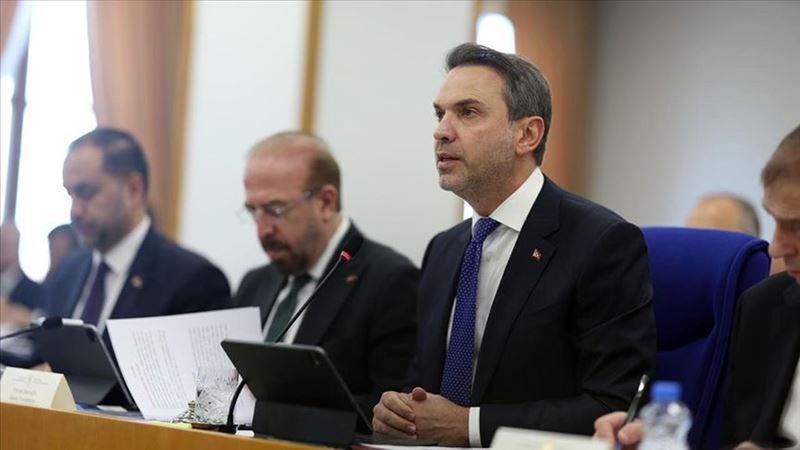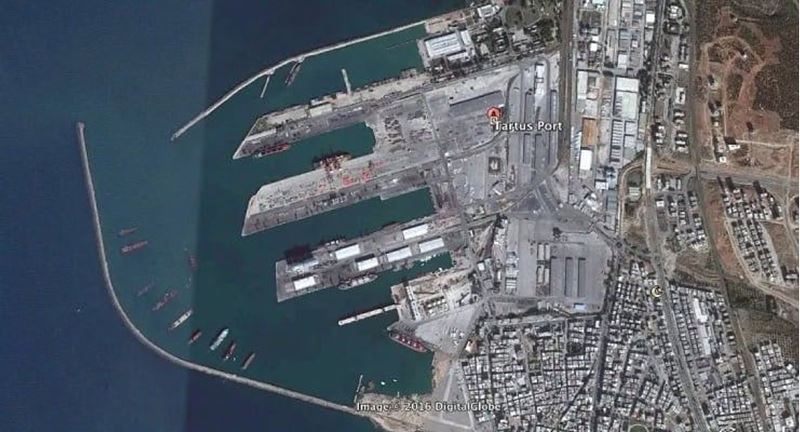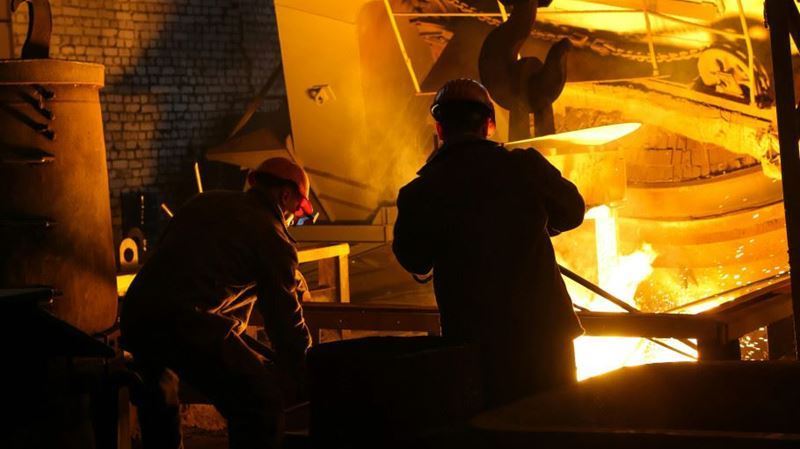Minister of Energy and Natural Resources Alparslan Bayraktar presented the 2026 budgets of his ministry and affiliated institutions to the Turkish Grand National Assembly (TBMM) Planning and Budget Commission.
Record Growth and New Goals in Mining
Bayraktar emphasized that mining is one of the key pillars of economic security, noting that inspections in the sector have intensified. In the first 10 months of this year, 1,323 companies were fined, and more than 2,000 operations were suspended.
He stated that the size of the mining sector increased from TL 116 billion in 2002 to TL 525 billion in 2024, while mineral exports rose sevenfold, reaching USD 6 billion.
Bayraktar reported a record year in boron production, with 2.5 million tons of sales generating USD 1.3 billion in revenue. He added that lithium carbonate production efforts are ongoing in Eskişehir Kırka.
He also noted that Eskişehir Beylikova hosts the world’s second-largest rare earth element deposit, saying: “We have commissioned a pilot facility to bring 694 million tons of reserves into production, and work on an industrial-scale plant is underway.”
Strong Energy Fleet and New Drilling Ships
Bayraktar highlighted efforts to reduce foreign dependence on oil and natural gas, stressing that two new seventh-generation drilling ships have been added to Türkiye’s fleet. “In just ten years, we have built the world’s fourth-largest exploration fleet, consisting of six drilling ships, two seismic research vessels, and support ships,” he said.
He announced that the latest discovery in the Black Sea has brought Türkiye’s natural gas reserves to 92.4 billion cubic meters.
In the Sakarya Gas Field, production reached 9.5 million cubic meters per day following the completion of Phase 1, supplying gas to more than 4 million households and preventing USD 1.5 billion in imports annually.
Regarding Phase 2, Bayraktar said the “Osman Gazi” floating production platform has been commissioned: “We will begin production in 2026. Daily output will reach 20 million cubic meters, and with Phase 3 in 2028, it will rise to 45 million cubic meters.”
He added that oil production in Gabar increased by 42%, reaching 81,000 barrels per day, contributing approximately USD 2 billion annually to reducing the current account deficit.
Major Expansion in Natural Gas Infrastructure
Bayraktar announced that 161 onshore drilling operations were completed this year, mainly in Şırnak, Adıyaman, and Diyarbakır, with 50 more ongoing. “We produce 180,000 barrels per day domestically and abroad enough to meet the fuel needs of about 7 million vehicles,” he stated.
Türkiye continues to expand its underground natural gas storage capacity, now reaching 6.3 billion cubic metersthrough the Silivri and Tuz Gölü facilities. “By 2028, we aim to store at least 20% of our annual consumption,” Bayraktar stated.
He also noted that Türkiye’s natural gas network spans 243,000 kilometers, delivering gas to 81 provinces, 950 settlements, and 229 organized industrial zones. “Today, 85% of the population has access to natural gas,” he said.
Türkiye Among Europe’s Top 5 in Renewable Energy
Bayraktar highlighted that Türkiye’s electricity demand rose 6% last year, reaching 354 billion kWh, and almost all of the 7,000 MW of new capacity installed in the past year came from renewable sources. “Our wind and solar installed capacity has surpassed 38,000 MW. Türkiye ranks 5th in Europe and 11th globally in renewable energy capacity,” he said, adding that the country aims to raise wind and solar capacity to 120,000 MW by 2035.
Nuclear Energy to Prevent 7 Billion Cubic Meters of Gas Imports
Bayraktar stated that once the Akkuyu Nuclear Power Plant becomes fully operational, it will supply 10% of Türkiye’s electricity demand, preventing 7 billion cubic meters of natural gas imports annually.
He added that new nuclear projects in Sinop and Thrace, as well as Small Modular Reactor (SMR) initiatives, are underway, with a goal of achieving 5,000 MW of SMR capacity by 2050.
Energy Efficiency and Savings as Priorities
Bayraktar underscored that energy efficiency is being pursued alongside climate goals: “In 2024, we invested USD 3.4 billion, saving 1.5 million TOE (tons of oil equivalent) of energy and preventing 4.8 million tons of carbon emissions,” he said.
He added that TL 242 million in grant support has so far generated TL 3.5 billion in annual energy savings.
Strengthening International Energy Cooperation
Bayraktar emphasized Türkiye’s vision of becoming an “energy hub country”, noting that 20 agreements were signed with 18 countries in the past year, securing 143 billion cubic meters of LNG contracts for long-term supply security. “We will start drilling in Somalia in 2026 and are conducting new exploration projects in Bulgaria, Romania, Libya, Oman, Venezuela, and Niger,” he said.
He also announced that Türkiye signed a Strategic Civil Nuclear Cooperation Agreement with the United States for the peaceful use of nuclear energy.
530 Billion TL in Energy Support for Citizens
Bayraktar stated that in the first 10 months of 2025, the government provided TL 530 billion in electricity and natural gas subsidies.
“Currently, 54% of electricity and 45% of natural gas costs are subsidized by the Treasury,” he noted.
Support programs for low-income households continue, and since July, natural gas for martyrs’ families, veterans, mosques, and cemevis has been supplied at a 50% discount. Concluding his remarks, Bayraktar stated: “Under the leadership of our President, we are taking strong and determined steps toward a fully independent Türkiye in energy from oil and natural gas to nuclear power, renewable energy, and mining.”










Comments
No comment yet.